15 Epic Learning Science Experiments at Home for Kids
Crayola Pip Squeaks Washable Marker Set (65ct), Coloring Set, Art Supplies for Kids, Drawing Kit, Ki...
$11.67 (as of March 29, 2025 18:58 GMT -07:00 - More infoProduct prices and availability are accurate as of the date/time indicated and are subject to change. Any price and availability information displayed on [relevant Amazon Site(s), as applicable] at the time of purchase will apply to the purchase of this product.)Are you looking for some kid-friendly activity you can do indoors? Rainy days don’t have to be boring when you can do these cool science experiments at home. Ditch the screen and squeeze in some bonding with the little kiddos. Learn and experience these hands-on science discoveries in the comforts of your own home. Studies show that engaging in exciting projects off-screen is a lot better than increasing screen time for learning. By devoting hours to scientific experiments, you will have a fun and rewarding leisure time.
Stimulate your little one’s learning, creativity, and imagination, here is a list of cool science experiments you can do with kids. You will be surprised to see that these mind-blowing experiments are not costly. Most of the materials you will be using can be found at home.
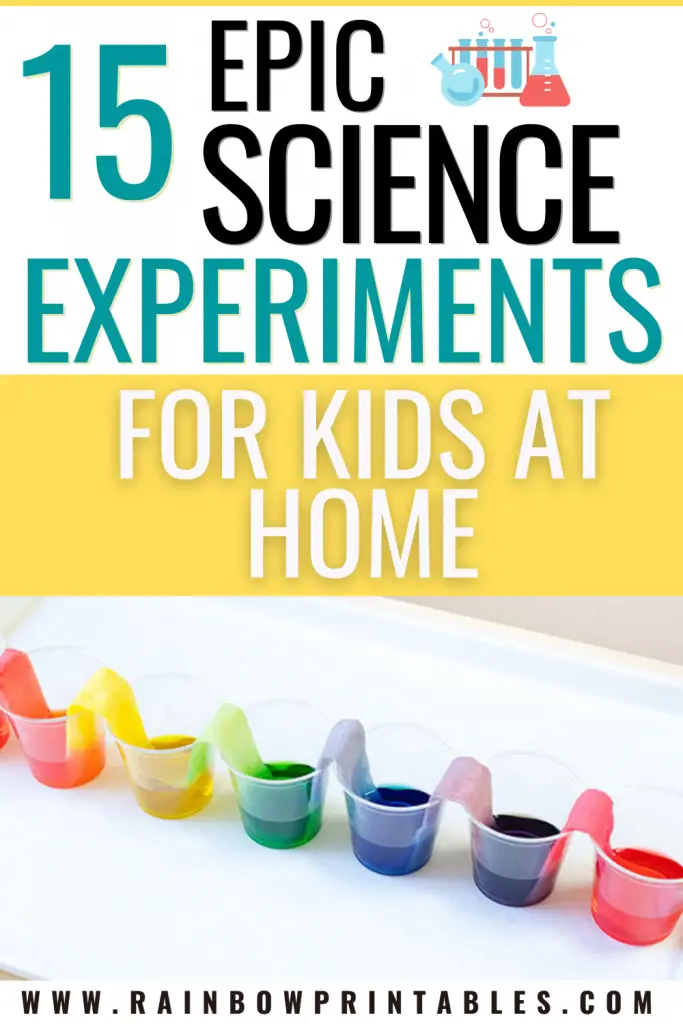
And why not check out our collection of free coloring pages for kids! We update our resources library regularly so feel free to check back as we add more and more content. We’re currently at over 1000+ coloring pages and creating more how-to-draw stuff art tutorials!
Note: This tutorial and our many others are suitable for ages 3 to 10 (preschool and above.)
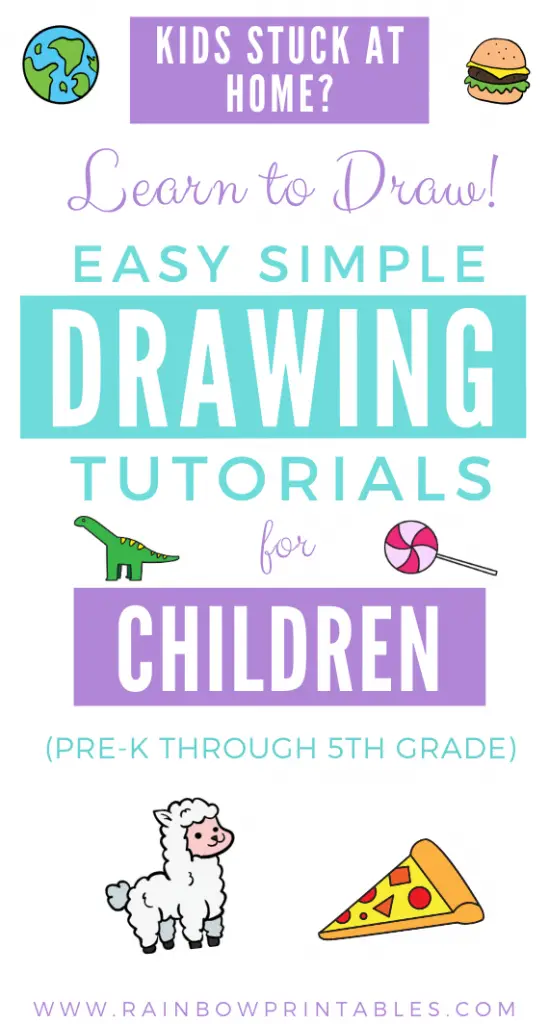
Table of Contents
Enjoyable Home Experiments for Cheery Toddlers
(2 to 3 years old)
1. Creating a Rainbow
This fun science experiment will reveal that the sunlight has seven colors that we cannot easily see. Prepare to split the light of the sun into red, orange, yellow, green, blue, and indigo as you discover the creation of a rainbow.
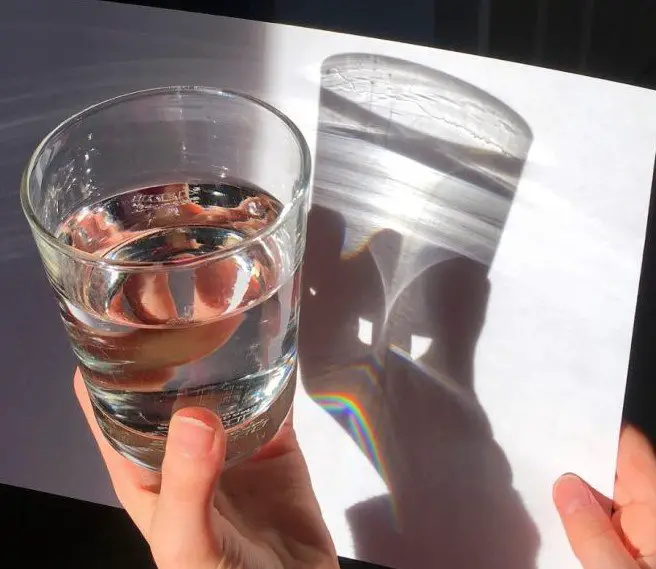
2. Music from Glasses of Water
You can make cool sounds and soft melody with this unique musical instrument: drinking glasses or jars filled with water. The vibrations you make as you hit the glasses turn into sound waves that travel through the water. If you listen carefully and use notes that complement, you can produce heartwarming music.
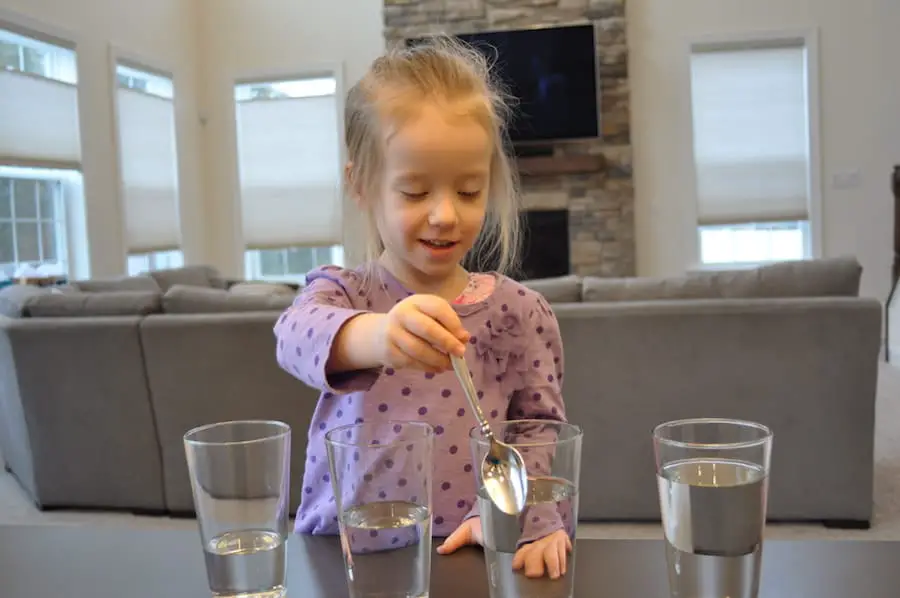
3. Making Secondary Colors
When you only have primary colors to use, can you still end up with a colorful artwork? But of course! With this fun activity, kids will learn to mix colors to form new ones. It is going to be a fun and exciting mixing experience with your magical paintbrushes.
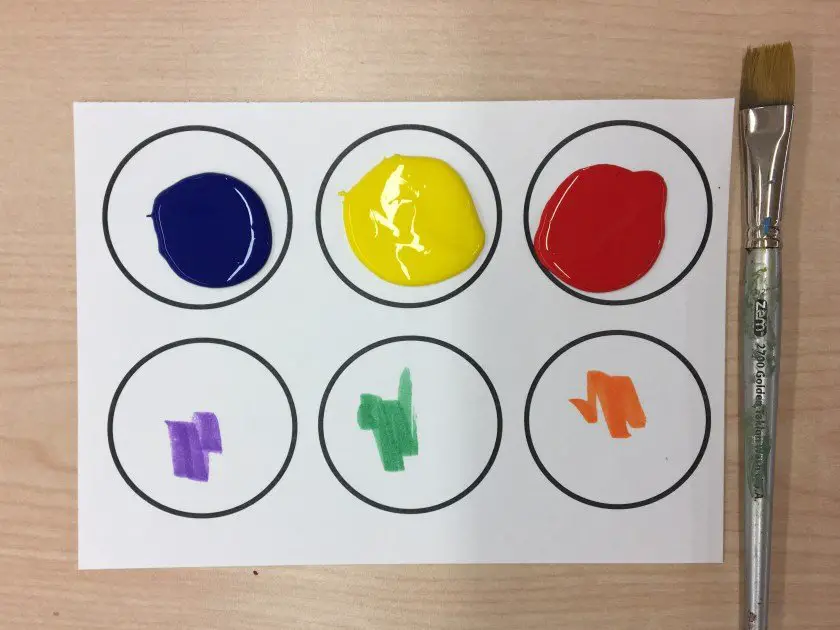
4. Sinking or Floating?
Did you know that you can do scientific experiments without hurting your purse? Water and the gift of physics can save you in this activity. Find some toys, utensils, or other small objects at home that can fit in your container of water. You will be surprised to see that not everything will sink in the water. The heavier object will sink while lighter ones will float.
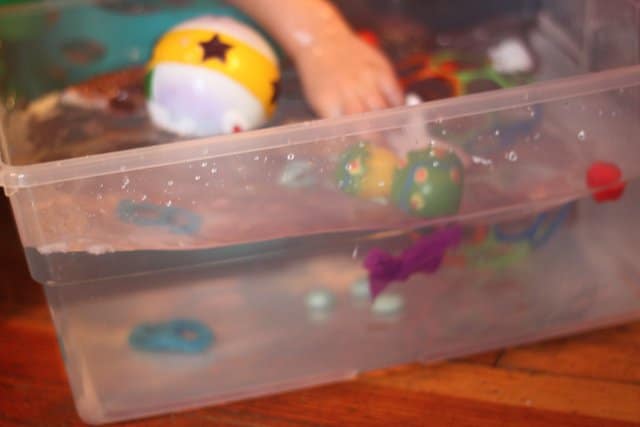
5. DIY Hanging Balance Scale
An activity that your little ones can do by themselves. From tying strings to weighing things. Since the Earth has gravity, it can pull down objects to the ground. Between two things you have to measure, the heavier ones will be closer to the surface of the Earth. In this science experiment, you will only need four things, a hanger, strings, and at least two small objects to compare.
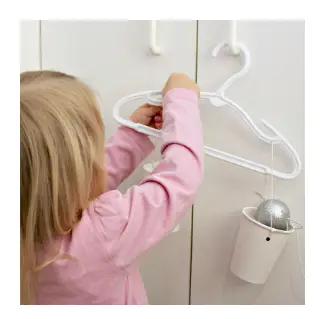
Fun, Easy, and Cool Activities for Your Little Preschoolers
(3 to 5 years old)
6. String Telephone
Can our voice travel without a telephone? If you are about five (5) feet away from your friend, will you be able to hear his/her voice without shouting? In this learning activity, you will understand how our landline phones work. Delight as you are about to experience your voice travel through a string.
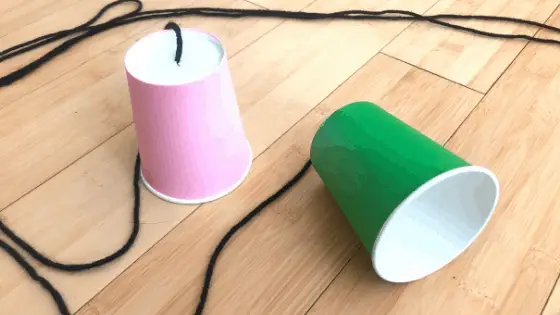
This string telephone allows you to hear voices from the other end as the vibrations travel through the tight string while you speak. The sound vibration travels from one end like a wave and turns back into sound again upon reaching the other end.
7. Colorful Water Crawl
A super easy and simple science activity that is fun to look at and exciting for a Pre-K to witness. In this hands-on project, adult supervision is a must. You may use different colors for each cup or just one for all. Either way, it will produce the same effect.
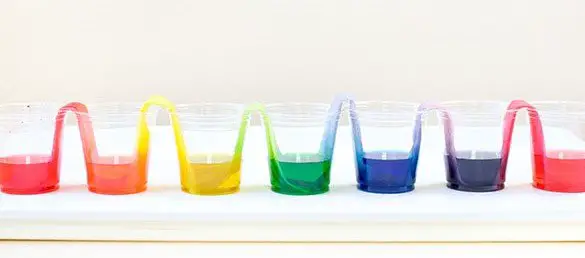
The movement of the water in a crawling or walking direction is what we call capillary action.
It is an inherent ability of the molecules of water to rise and travel. This scenario is akin to what happens to water when it enters the roots of plants. The water goes up through the stem to reach the leaves.
8. Balloon Rocket Ship
Kids can explore science in just about anything, solid, liquid, and even gas. In this activity, you can show your kids the existence of gases that take the shape of their container. A balloon can become oval, round, or heart-shaped once inflated. Once the trapped air is released, you will see that your balloon will boost like a rocket launching as the air rushes out with great energy.
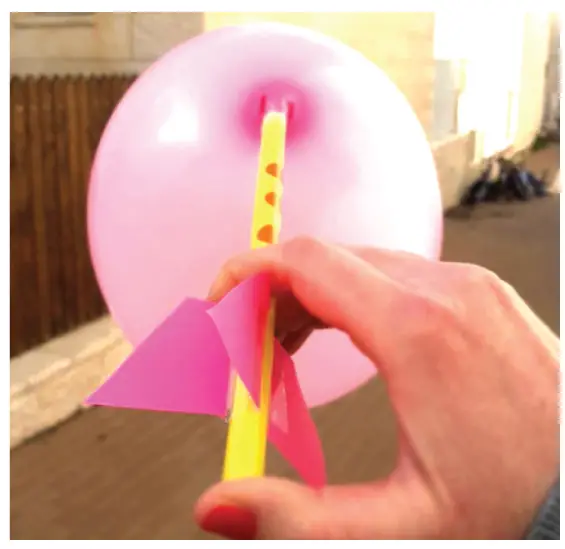
9. Lava Lamp
There are a lot of interesting facts that surround a volcano. These include the formation of diamonds, hot springs, and blistering lava. Most kids will be curious about these phenomena. To impress them and show how lava looks up-close, do this activity at home. Put some vegetable oil and water together in a glass container and drop a pinch of sea salt. Your oil blob will move like lava in the glass.
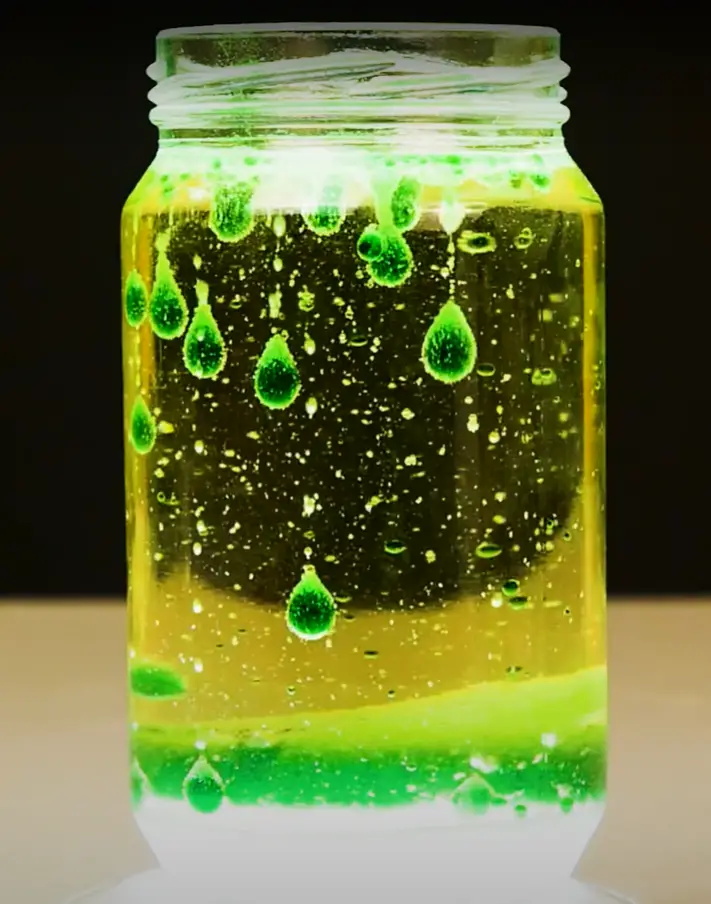
10. Light Refraction Magic
Can you use science to make magic? In this project, you can show an exceptional spectacle by playing with light.
Adult supervision is necessary since this activity requires a particular vantage point. You can do this using a zip lock bag, a marker, and a glass of water. Light refraction, when total, can make things disappear before your eyes, but the image not totally refracted like the one on the zip lock bag will remain visible.
Science DIY Tricks for Elementary School Kids
(5 to 12 years old)
11. The Mentos Mint Volcano
Dissolving a candy using soda is something you would not want to try inside your tummy. Yes! It is something you have to explain to the younger ones. This activity can be messy. So, instead of staying inside the house, you must go to the porch or a garden area at home.
It is an experiment that will show you how minty mentos can trigger an eruption of gasses from a bottle of soda drink. You’ll have a bubbly day ahead!
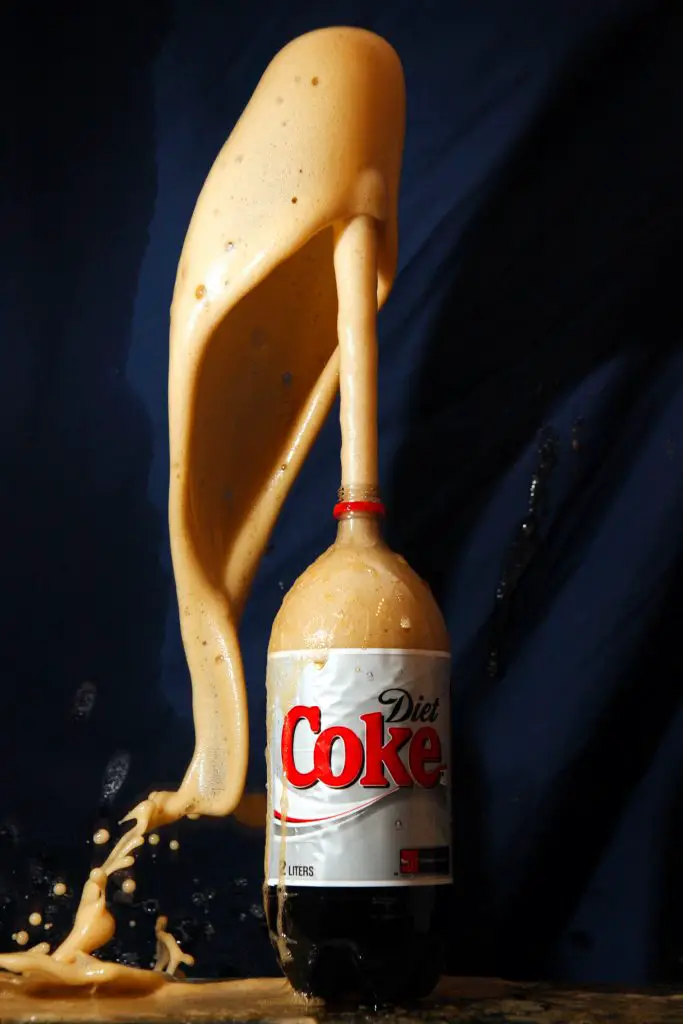
12. The Candle Inside a Glass
Playing with a candle is a definite no-no for kids. But in this activity, parents are encouraged to engage their children in the glass experiment with parental supervision, utmost diligence, and care.
This experiment shows that the pressure from the hotter air inside the glass is higher while the candle is burning. It pushes the water out. However, when the wick goes out, the air cools down. It results in the release of pressure inside the glass, causing the water to get sucked up.
13. Invisible Ink from the Sour Lemon Juice
The next activity is suitable for kids who love to send secret codes or messages and maps for hidden treasures. You’ll find out that when you dilute lemon juice in water, it becomes invisible. However, it oxidizes and turns brown when heated, making it a perfect medium to facilitate secret communication or hide confidential matters.
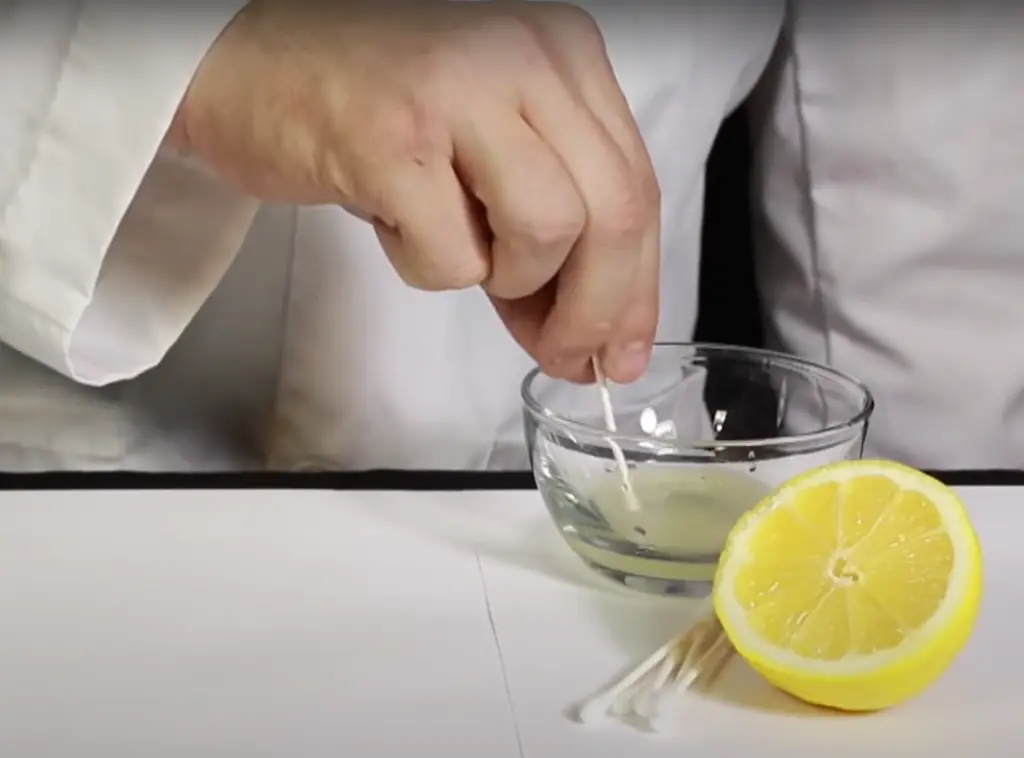
14. Instant Cloud in a Jar
The study of our water cycle is a bit easy nowadays. You can browse through the pages of your book, ask your parents, or even watch it on Youtube. However, seeing the formation of water vapor into clouds this close is something unique and quite exciting.
In this experiment, you will be making your clouds inside a jar. You may add some food coloring to make the cloud extra fun to watch and more visible to your eyes.
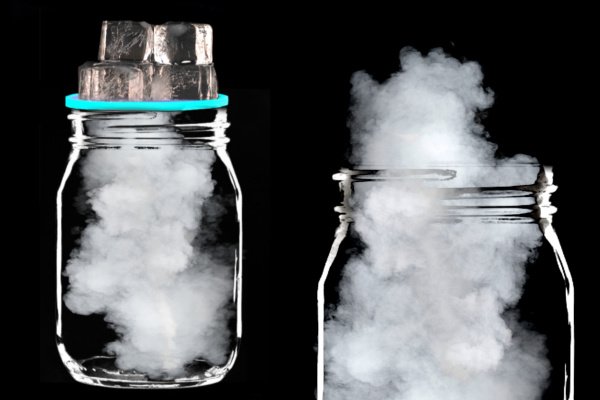
15. Make a Mini Tornado
It is not only clouds that you can make inside a bottle. A tornado-making activity can be fun too. With a few drops of dishwashing liquid, glitter, water, and a bottle, you can make a mini-tornado inside your clear bottle.
In this science experiment, you will learn about the centripetal force that directs the water to the center in a circular motion. It happens when you spin the bottle fast and in a circular path. The vortex you created inside the bottle will look similar to the vortex we can naturally find in hurricanes and tornadoes.
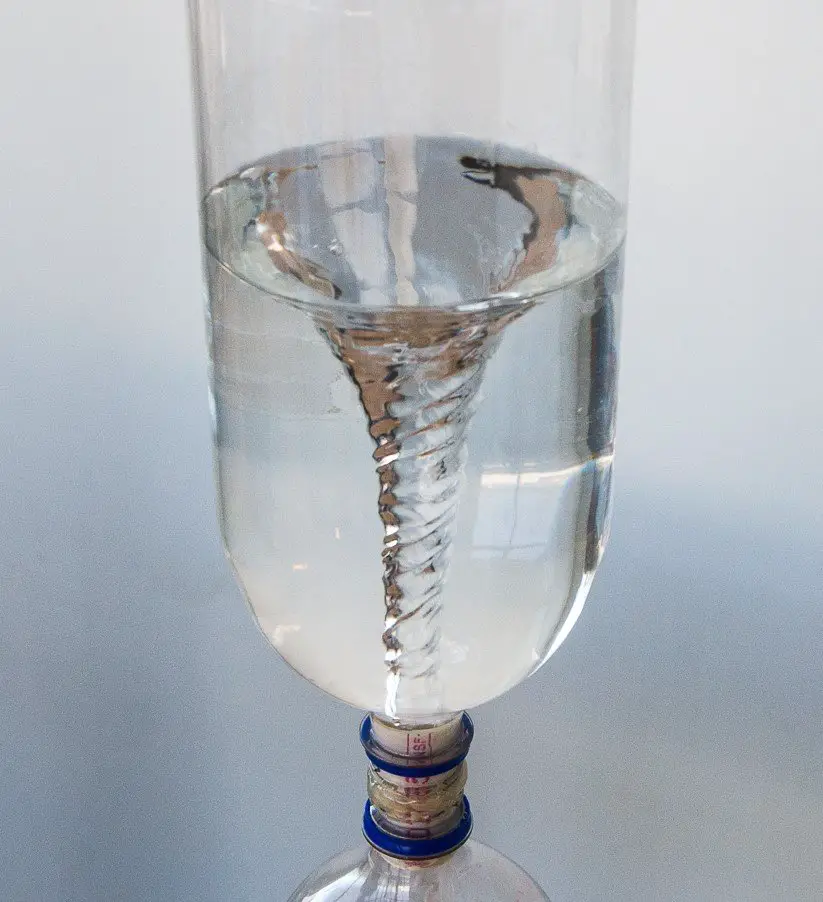
Life is for us to live and for our little ones too. So, let’s be intentional in spending our few minutes with them. Let us give them a chance to grow. There are several things to keep your child busy, but I would like to encourage you to be productive with these super easy experiments. Learning and bonding will bring out the best in you. How do you spend learning time with your kids? Ping me or leave a comment down below! I’m so excited to hear your stories.


